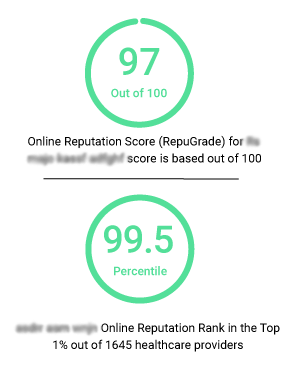Top 5 Healthcare Marketing Aspects You Should Evaluate
 The internet is making all industries, including healthcare, more competitive. Patients use the internet as a tool to compare rates and quality of expertise. That's why healthcare marketers need to pay attention to the content quality of their websites, as well as the manner in which they interact with potential customers online. Here are five of the most important aspects you need to be concerned about as a healthcare marketer.
The internet is making all industries, including healthcare, more competitive. Patients use the internet as a tool to compare rates and quality of expertise. That's why healthcare marketers need to pay attention to the content quality of their websites, as well as the manner in which they interact with potential customers online. Here are five of the most important aspects you need to be concerned about as a healthcare marketer.
Search Rank
The best way to cut marketing costs is by embracing SEO and getting strong rankings in search engines. When your site shows up on the first few pages based on your keywords, then it tells you that not only are you using SEO techniques correctly, you also have crafted quality content that search engines view as authoritative. The more authoritative web pages you publish, the more opportunities you will have to drive free traffic to your site. The key is offering plenty of valuable healthcare content that consumers are already trying to research. Posting interviews with medical professionals is one way to help drive traffic to your site. Ideally, you want your site to show up in the first few Search Engine Results Pages (SERPs). Ultimately, everyone wants the top spots on the first page, but even if you don't get it organically, you can launch a pay-per-click ad campaign such as AdWords through Google and gain such visibility. From there you can experiment with ad campaigns to find out which keywords work the best at bringing you leads. If you notice business drops off when you discontinue a PPC ad campaign, it's a signal to launch a new campaign soon.
Origin of Leads
Lead generation can now come from a multitude of sources, although the telephone is still the primary medium in which leads convert, since it's the most personable interaction among electronic communication channels. The initial connection might begin with a search engine, the website, social media profile or email. From there people usually want to speak with a healthcare expert or representative before they commit to an appointment. Track the sources of leads. It is important because it helps you analyze which marketing channels are most effective. If it turns out that your business can attract enough patients without the high cost of television, radio, outdoor or print advertising, it may help you trim your marketing budget accordingly. Tracking how people found out about your business, regardless of how they contacted you, is just as important. You can either ask prospects directly how they found out about you or ask them to fill out a short survey that you provide online. If it's a referral, it can help you gauge who your top influencers are. The more people tell you they found you through a search engine, the more you know you've selected effective keywords. Tracking mobile conversions is valuable information as well since mobile users are the most ready to make a purchase.
Social Media Engagement
The driving force for modern marketing of almost all industries has become social media, which now outperforms traditional media advertising in terms of lead generation. In order to be competitive, it is imperative now to have a social media presence with representatives who can answer consumers’ questions in real time as soon as possible. Markets are more competitive since customers don't necessarily have to wait for responses, as they can easily click to a competitor if the wait time is too long. Customer service response time has become an enormously important element of social media engagement.
Patient Loyalty
Attracting patients is only part of the equation for healthcare marketers. Retaining their business is just as important, because it equates to loyalty and perhaps further word-of-mouth promotion by the patient. The more repeat business and referrals you build, the less you will need to be concerned about patient acquisition cost, which is its own metric that reflects an inverse relationship with your patient retention rate. You can figure out your patient retention rate by comparing your number of existing customers with the number you acquired or lost over specific time frames.
Marketing Evaluation
To maximize your marketing efforts and return on investment, you need to find out which marketing campaigns work the best and which ones prove to be unnecessary. The more you develop personal relationships with your clientele, the more you can ask questions about why they are choosing your business over competitors. By studying analytics from various forms of market research, you can fine tune your campaigns and focus on your most cost-effective lead generation strategies. It's very essential to decide how well each campaign met your expectations in terms of response rates, conversions and revenue.
Comments are closed


